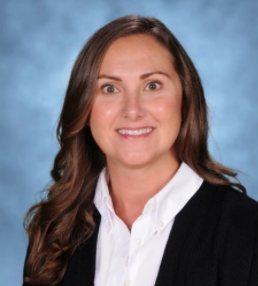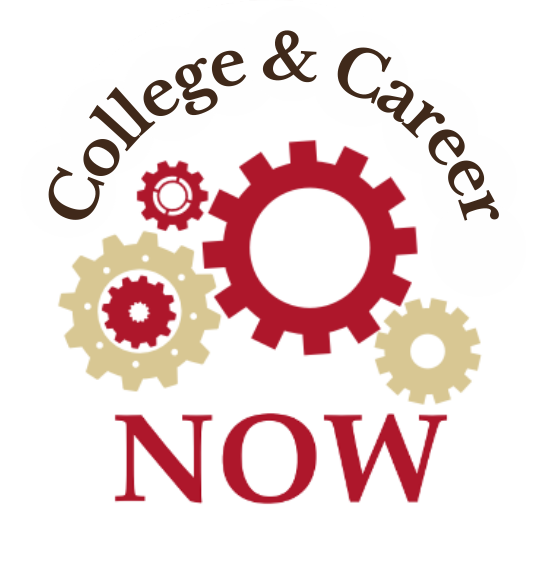
#SDSUSCFellows- Stephanie Patrzik
Interview with Stephanie Patrzik
School Counselor at Grand Traverse Academy & District Leadership Team
What inspired you to want to become a school counselor?
I went into the profession of teaching and started my work with elementary students. I quickly realized that the things happening outside of school were having a direct impact on the classroom, impeding what I was trying to teach them. I spent my first six years as a teacher in a multiage classroom with grades 1,2 & 3 which allowed me to spend years getting to know the children and their home lives. I found it very important to help the children with the things that were happening outside of school, so they could be successful in school. When I looked towards pursuing a Masters degree, school counseling pulled all those pieces together. I want to help children believe in themselves and understand that they are capable of persevering through hard things! It is essential that the students feel cared for by an adult and connected to their school so they graduate high school feeling like a whole person. This is the best scenario to help people achieve success in life.
What is the biggest challenge you faced in your own educational journey?
I am the first in my family to go to college. My dad supported the family by working for General Motors and my mom was a homemaker. No one else in my family had gone to college, and did not offer me support or guidance with my plans. It was expected I would get good grades in high school and be a good student, but beyond that, I was on my own. I didn’t have help with questions like, “What I’m gonna do with my life? What kind of career do I want? How do I apply to college? How do I get funding for college?” Those were barriers that I had to break down myself. And I didn’t know about FAFSA or anything college related, frankly, so the biggest challenge to my journey was finding that information for myself with little resources. I remember junior high was the first time I even thought about postsecondary education and it was only because the kids around me were talking about where they wanted to go to college. It just occurred to me then that I could probably go to college since I was sure my grades were probably about as good as those kids. The challenge has been making my own way without anyone to guide, mentor, help me. I made a few mistakes along the way, but was determined to keep going.
If you could go back and visit your elementary, middle, and or high school counselor, what would you tell them?
My middle school counselor was a kind and gentle man. He had a heart for helping, but was nearing retirement. He also taught half the day, and was only available for limited hours. I believe he did his best to be helpful, but he made some very poignant mistakes where he unintentionally supported bullying. He would allow a group of students to call one student dow to his office, while they all waited there for you to arrive. They kind of gang up on other students with the counselors’ support. I experienced this as a victim and a bully. I was the part of the group ganging up an another student, as well as on the other side, where a group of students would call me into the counseling office. It was a very isolating and lonely feeling. I remember that you would come to his door, wondering who’s on the other side? Then the door opens and it’s all your friends! They were there to tell you about something you did that they didn’t like, or how much they disliked your brother. It was much more harmful than helpful. I would like to give him guidance and information on how to best support students without inadvertently making someone feel bullied or targeted. As for my high school counselor, he also spent part of his day teaching, and probably had administrative duties as well. Most of our contact with him was through the bulletin board outside his office. For example, if you wanted scholarship information or wondered when a college admissions advisor was coming, you had to go read the board. I’d encourage him to actually get into the classrooms and talk to the students. Learn student names and show interest in getting to know the kids. Let students know what is out there and try to work with students who showed promise but maybe didn’t have parental direction. This was me as a student, I didn’t even know I was eligible for National Honor Society until the meeting came and went and someone asked why I didn’t show up. It just never occurred to me that I could be “that” student. It’s important to identify the students who don’t have anyone advocating or looking out for them.
What message of encouragement would you give to first generation students trying to figure out their postsecondary path?
Firstly, believe in yourself! You don’t have to have it all figured out before you start. First generation students need a lot of encouragement and support. Also, keep an open mind. I’ve had over thirty different jobs and I’ve been in this position for 13 years and in this district for almost 20 years now. Most of those positions I held while working my way through high school and college. It’s important to get out there with an open mind. If you try something and it isn’t working, it’s okay! Learning what you don’t like is valuable, and all of your experiences are building skills towards success. Don’t quit! Keep going and try something different because oftentimes we don’t know what it is we’re looking for until we find it. For example, initially I was very interested in healthcare but after some volunteer experiences and a couple of early jobs, I realized that was not the career path for me. Look for occupations that are interesting and something you can see yourself doing everyday. Then talk to people doing that job and ask questions to help you get more information.
If you could give one piece of advice to higher ed professionals, what would you want them to know?
I would like higher education professionals to take the whole child, or person, into account. Prior to high school graduation, educators are very mindful of the whole child. We use this mindset to view all aspects of the person we are supporting each day. Upon high school graduation, there is an immediate shift to an unforgiving approach of hard deadlines, strict requirements, and little consideration to the human-experience of the person. While higher ed. is usually dealing with adults, rather than adolescents, we still can’t discount a student’s life experiences and what they bring with them to the classroom every day. I think some higher ed professionals may have a “take it or leave it” or “my way or the highway” approach. The Covid-19 pandemic has certainly made an impact, highlighting that grace, encouragement, and support should not end at high school. We have to be more empathic and nurturing towards individuals as they strive to better themselves through education. Higher ed can adapt to this model. The cut and dry approach is antiquated! To build a sustainable post-secondary culture in our country, we must move to be more considerate and concerned with the students in front of us, no matter their age.
What do you hope to gain as a school counseling fellow?
I hope to learn advocacy skills, and build a connection with other veteran counselors. In many school buildings there’s just one school counselor, which has been my experience. It’s been really validating and enlightening to be able to connect with others’ from across the state, to begin creating a shared mission and vision. We have created really important projects that I hope empower and support other school counselors in our state. I hope it pushes the envelope in terms of what our school counselors are doing and setting clearly defined expectations. We need to discuss what’s reasonable or not reasonable and make sure counselors are being utilized to their potential in essential duties.
